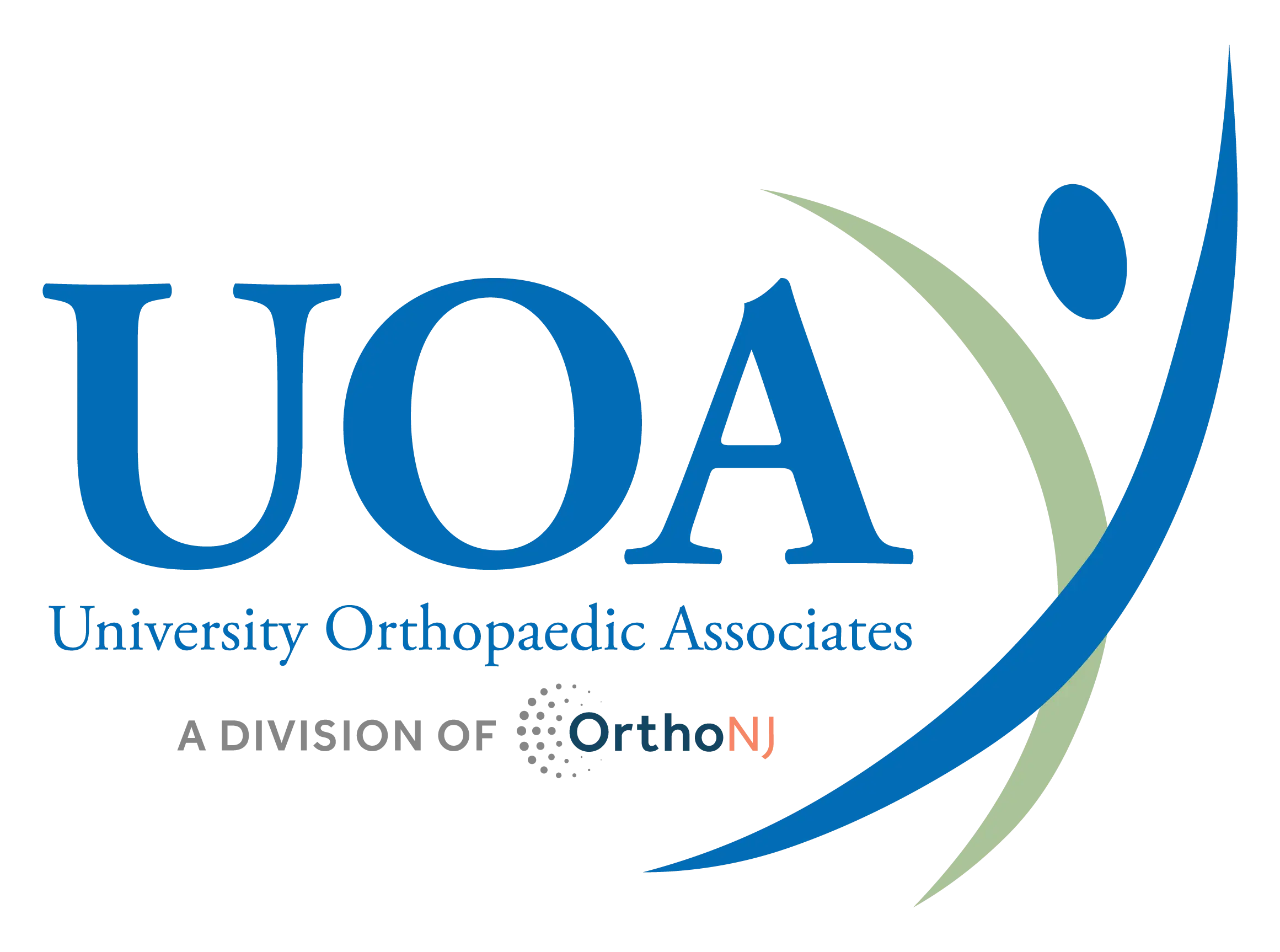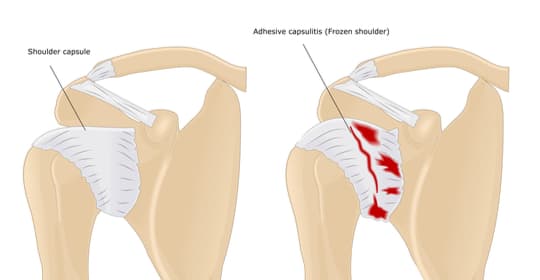Frozen shoulder, also known as adhesive capsulitis, is a chronic inflammatory condition of the shoulder that causes pain and a loss of range of motion. It is potentially long-lasting—two years or more—but most cases resolve on their own.
This condition affects the shoulder capsule, which is a case of connective tissue that houses the bones, tendons and ligaments of the shoulder joints. In adhesive capsulitis, this capsule becomes inflamed, develops scar tissue and thickens, resulting in a gradual loss of shoulder movement.
Frozen Shoulder Causes
The exact cause or causes of frozen shoulder—the reason why it develops in someone—is not fully understood. Researchers have identified risk factors that make it more likely to develop adhesive capsulitis, such as:
- Age: People over 40
- Sex: it affects women more often than men
- Rotator cuff injury
- Fracture
- Shoulder surgery
- Stroke
- Diabetes
- Thyroid dysfunction
- Parkinson’s disease
- Tuberculosis
- Heart disease
Frozen Shoulder Stages and Symptoms
Frozen shoulder occurs in three stages, each with different symptoms and lasting different lengths of time.
- Freezing stage: This stage is characterized by pain in the shoulder. As the pain becomes worse, range of motion becomes limited. This stage can last from six weeks to nine months.
- Frozen stage: This stage usually lasts between four to six months. Pain improves, but stiffness and range of motion worsens.
- Thawing stage: This stage of gradual recovery, lasts the longest: up to two years. Range of motion slowly returns.
Frozen Shoulder Diagnosis
Frozen shoulder is usually a fairly simple diagnosis to make and can usually be done with a physical examination. A physician will first manipulate the patient’s shoulder to check passive range of motion. Then the doctor will ask the patient to move his or her shoulder—active range of motion.
In most pain conditions, only active range of motion is limited. The limb can move, but the patient doesn’t want it to because of the pain. In adhesive capsulitis, both active and passive ranges of motion are limited. The shoulder simply cannot move as much as a non-frozen shoulder.
These tests, combined with a careful medical history in which the patient describes symptoms and their length, are usually enough for a doctor to confidently diagnose frozen shoulder. If the diagnosis remains unclear, imaging studies such as X-rays and magnetic resonance imaging (MRI) scans can rule out other sources of pain and disability.
Frozen Shoulder Treatment
Most cases of frozen shoulder resolve on their own, but may take up to three years to do so. About half of anyone who develops frozen shoulder will be left with permanent but mild range of motion loss, and about 10 percent will have more serious range of motion limitations.
There are few effective treatments for frozen shoulder. Anti-inflammatory steroid injections into the shoulder may be helpful, especially during the freezing stage, but scientific evidence supporting steroid use is limited. Physical therapy may also be helpful in returning some range of motion, but again, evidence is limited.
For severe cases of frozen shoulder, surgery may prove useful. Surgery may take the form of manipulating the arm while the patient is under anesthesia, or a minimally invasive procedure in which the surgeon cuts through the connective tissue that makes up the shoulder capsule.
If you have shoulder pain and limited range of motion, request an appointment at University Orthopaedic Associates. Our shoulder and elbow specialists can determine if you have frozen shoulder or another shoulder condition, present your treatment options and help you decide which is right for you.





